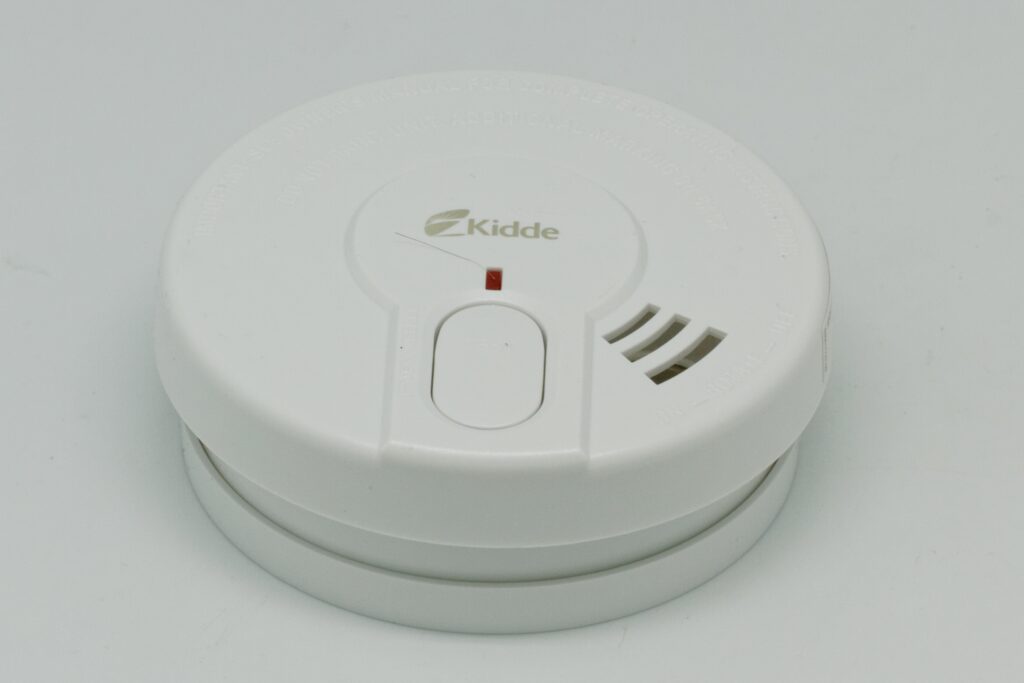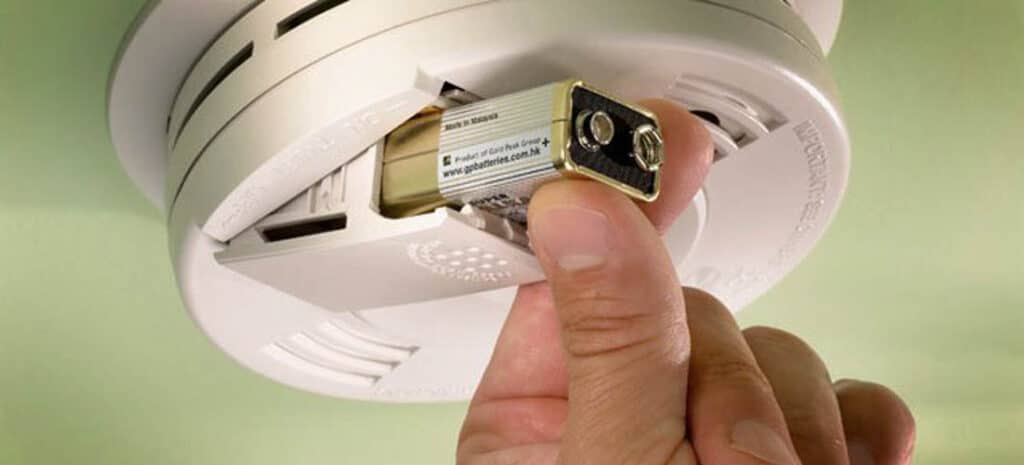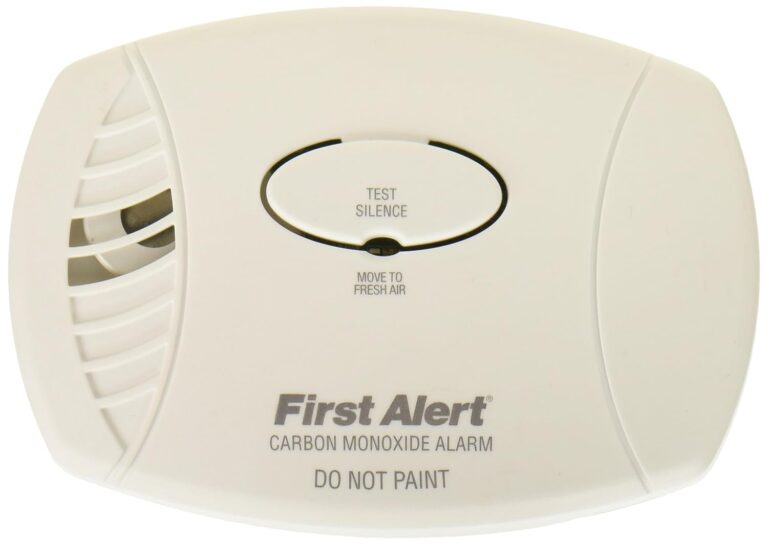Introduction
Will A Carbon Monoxide Detector Detect Diesel Fumes: Carbon monoxide (CO) is a colorless, odorless gas that is produced by the incomplete combustion of fossil fuels such as gasoline, natural gas, and diesel. It is highly toxic and can be deadly if inhaled in high concentrations. As a result, carbon monoxide detectors have become an essential safety device in homes and businesses to alert occupants of the presence of this dangerous gas. However, there is often confusion about whether a carbon monoxide detector can also detect diesel fumes.
Firstly, it is important to understand that diesel fumes do contain carbon monoxide, but they also contain other gases and particulate matter that can be harmful to human health. Diesel engines produce a complex mixture of gases and particles, including nitrogen oxides, sulfur dioxide, and particulate matter. These pollutants can contribute to respiratory problems, cardiovascular diseases, and other health issues. While carbon monoxide is one component of diesel fumes, it is not the only harmful substance present.
Additionally, carbon monoxide detectors are made to find carbon monoxide gas and are programmed to sound a warning when the level of carbon monoxide hits a certain level. They do their job by checking the air for carbon monoxide levels and seeing if they are higher than a certain level. If the concentration goes above this level, the detector will sound a warning to let people inside know there might be a danger.

Will diesel fumes set off a carbon monoxide detector?
A carbon monoxide monitor could be set off by diesel fumes. Carbon monoxide (CO) is a gas that has no color or smell and is formed when fossil fuels, like gasoline, burn partly. Another gas that comes out when diesel fuel burns is carbon monoxide. These fumes can be dangerous or even kill you if you take them in.
It is the job of a carbon monoxide monitor to find carbon monoxide in the air. It checks the amount of carbon monoxide gas in the air and sounds a warning if it goes over a certain level. Most detectors have a sensor inside them that sets off a warning when carbon monoxide is detected.
A carbon monoxide monitor can be set off by diesel fumes because they contain carbon monoxide. For those who own a diesel car or other diesel-emitting equipment. It is important to keep your carbon monoxide detector in good shape and test it occasionally. This is very important if you have a garage or other enclosed area where gas fumes can build up.
It’s important to remember that carbon monoxide monitors aren’t designed to pick up on other gases or pollution. Like diesel fumes’ nitrogen oxides or particulate matter. Smoke alarms might not pick up on these gases and particles. But they can still be harmful to people and the environment. In order to protect people from gasoline fumes, extra steps need to be taken. Such as making sure there is enough air flow and using exhaust systems or screens.
Is diesel fumes carbon dioxide?
Yes, carbon dioxide is in truck fumes. Hydrcarbons are compounds made up of hydrogen and carbon atoms. Diesel fuel is made up of these compounds. Diesel fuel goes through a combustion process in an engine that makes carbon dioxide as one of the byproducts. Carbon dioxide is a greenhouse gas that makes the temperature change and warm the planet.
Diesel fumes have more toxins than just carbon dioxide. They also have nitrogen oxides, particulate matter, and sulfur dioxide. The health of people and the earth can both be hurt by these pollutants. Smog and acid rain can be caused in part by nitrogen oxides. While particulate matter can lead to breathing problems and heart diseases.
It is important to note that while diesel fumes do contain carbon dioxide. They also emit other greenhouse gases such as methane and nitrous oxide. Methane is a potent greenhouse gas that has a much higher warming potential than carbon dioxide, although it is present in smaller quantities. Nitrous oxide is also a potent greenhouse gas that contributes to climate change.
A lot of carbon dioxide is released into the air when diesel fuel is burned in engines. Large amounts of carbon dioxide are released by the transportation sector, which includes cars, trucks, ships, and flights. Efforts have been made to lower the carbon footprint of diesel engines by making them use less fuel and creating replacement fuels like biodiesel.
Will gasoline fumes set off a carbon monoxide detector?
A lot of people worry about gasoline fumes, especially when it comes to their safety. If gasoline fumes can set off a carbon monoxide monitor is a question that comes up a lot. Carbon monoxide detectors are made to find carbon monoxide gas. Carbon monoxide is an odorless and colorless gas that can kill you if you breathe it in at high amounts. On the other hand, gasoline fumes are the vapors that come out when gasoline evaporates.
There is some carbon monoxide in gasoline fumes. But not enough for a carbon monoxide monitor to go off most of the time. Smoke and carbon monoxide detectors are made to find carbon monoxide gas. They are programmed to only go off when the levels of carbon monoxide hit a certain level. Gasoline fumes don’t usually get to these amounts, even in small rooms.
It is important to note that gasoline fumes can still be dangerous and should be handled with caution. If you breathe in a lot of gasoline fumes, you could get headaches, feel sick, or even pass out. When dealing with gasoline or being in a place where gasoline is present, it is best not to breathe in the fumes and to make sure there is enough air flow.
A carbon monoxide monitor should be put in your home or place of work if you are worried about the amount of carbon monoxide there. These monitors are made to let you know quickly if carbon monoxide gas is present, which can help keep you from getting poisoned by it. To make sure your carbon monoxide monitor is working right, you should test and clean it on a regular basis.
What to do if you inhale diesel fumes?
Diesel fumes are a common occupational hazard for individuals who work in industries such as transportation, construction, and manufacturing. Inhaling diesel fumes can have harmful effects on your health, so it is important to know what to do if you find yourself in this situation.
First and foremost, if you inhale diesel fumes. It is important to remove yourself from the source of the fumes as quickly as possible. If you are indoors, go outside to get fresh air. If you are in a confined space, try to open windows or doors to increase ventilation. It is crucial to get away from the fumes to prevent further exposure.
Once you have removed yourself from the source of the fumes, it is important to seek medical attention. Even if you do not immediately experience any symptoms. It is still important to get checked out by a healthcare professional. They can assess your condition and provide appropriate treatment if necessary.
In the meantime, there are a few things you can do to alleviate any discomfort or symptoms you may be experiencing. Drinking plenty of water can help flush out any toxins that may have been inhaled. You can also try using a saline nasal spray to help clear your nasal passages. If you are experiencing respiratory symptoms such as coughing or wheezing. Using a humidifier or taking a steamy shower can help soothe your airways.
It’s also important to do what you can to avoid being exposed to fuel fumes again. If you work in a field where gasoline fumes are common, make sure you follow all safety rules and wear the right gear to protect yourself. If you can, work in well-ventilated areas or with exhaust ventilation systems to reduce your exposure to diesel fumes.
Is smelling diesel fumes harmful?
Smelling diesel fumes can indeed be harmful to one’s health. Diesel fuel is commonly used in vehicles, generators, and industrial machinery, and its fumes contain a mixture of harmful chemicals and particulate matter. These fumes can be inhaled and absorbed into the body, leading to various health issues.
Firstly, Particulate matter, which is made up of tiny particles floating in the air, is very concentrated in diesel fumes. When breathed in, these particles can go deep into the lungs and cause breathing problems like wheeze, coughing, and loss of breath. Chronic lung diseases like asthma and coughing can also develop after being exposed to diesel fumes for a long time.
Secondly, Nitrogen oxides (NOx) and sulfur dioxide (SO2) are two of the many dangerous chemicals that are found in diesel fumes. These chemicals can hurt the lungs and make smog and other air pollution more likely to happen. There are also volatile organic chemicals (VOCs) and polycyclic aromatic hydrocarbons (PAHs) in diesel fumes. These two things are known to cause cancer and make getting it more likely.
Furthermore, exposure to diesel fumes has been linked to circulatory problems. Diesel fumes contain chemicals and particulate matter that can get into the system and harm blood vessels by causing inflammation and oxidative stress. This may make you more likely to have a heart attack, stroke, or other heart problems.
Lastly, diesel fumes can also have negative effects on the environment. The combustion of diesel fuel releases greenhouse gases such as carbon dioxide (CO2) and contributes to climate change. Diesel engines also emit black carbon. Which is a potent pollutant that can accelerate the melting of ice and snow, leading to global warming.
Carbon Monoxide Monitors
A carbon monoxide detector is not specifically designed to detect diesel fumes. While it may be able to detect some of the harmful gases emitted by diesel engines. It may not be as effective as a detector specifically designed for diesel exhaust. Diesel fumes contain a variety of gases, including carbon monoxide, nitrogen oxides, and particulate matter, which can be harmful to human health.
Carbon monoxide monitors can still be used to find carbon monoxide, which is often found in car diesel fumes. Carbon monoxide is a gas that has no color or smell and is made when gasoline burns partly. Chemicals in it are very bad for your health and can even kill you.
So, while a carbon monoxide monitor might give you some clues about diesel fumes being around. It is best to use a detector made just for diesel exhaust to get accurate and reliable readings of diesel fume levels inside.
Is a carbon monoxide detector sensitive enough to detect the emissions from diesel engines?
A carbon monoxide monitor isn’t made to pick up on the pollution that diesel engines put out. Carbon monoxide detectors are very good at finding carbon monoxide gas, which is produced when something doesn’t burn completely. However, they might not be delicate enough to find the specific emissions from diesel engines.
Diesel engines emit a combination of gases, including carbon monoxide, nitrogen oxides, and particulate matter. While carbon monoxide detectors can detect carbon monoxide gas, They may not be able to accurately measure the levels of other harmful gases emitted by diesel engines. Therefore, relying solely on a carbon monoxide detector may not provide accurate readings for diesel fume levels in an indoor environment.
Does a carbon monoxide detector have the capability to identify the presence of diesel exhaust?
That’s what a carbon monoxide monitor is mostly used for: finding carbon monoxide gas. This gas is made when fuels like gasoline, natural gas, and wood burn incompletely. It is very accurate for carbon monoxide detectors to pick up on carbon monoxide gas, but they might not be meant to pick up on diesel exhaust.
Carbon monoxide, nitrogen oxides, sulfur dioxide, and particulate matter are some of the gases and particles that make up diesel pollution. Carbon monoxide monitors can pick up on the carbon monoxide part of diesel exhaust. But they might not be able to pick up on the other harmful gases and particles that are in diesel fumes as well.
Carbon monoxide monitors are not meant to be used instead of diesel exhaust detectors. If you are worried about that car fumes are getting into your home. It is suggested to use air quality monitors or diesel exhaust devices that are made to measure the amounts of harmful gases and particles that diesel engines give off.
Are carbon monoxide detectors designed to detect the harmful gases emitted by diesel vehicles?
Gases like gasoline, natural gas, and wood can make carbon monoxide when they burn incompletely. Which is what carbon monoxide detectors are mostly used to find. Carbon monoxide monitors can pick up some of the gases that diesel engines give off, but they might not be as good at identifying the exact gases that diesel engines give off.
Diesel engines emit a complex mixture of gases, including carbon monoxide, nitrogen oxides, particulate matter, and various other pollutants. While carbon monoxide detectors can detect the presence of carbon monoxide in the air, they may not be able to accurately measure the levels of other harmful gases emitted by diesel vehicles.
Therefore, carbon monoxide detectors may not be the most reliable or accurate way to measure the levels of harmful gases that diesel cars give off, but they can give you some idea of whether diesel fumes are present. It is suggested that for more accurate results. You use air quality monitoring tools that are made to measure the different pollutants that diesel engines release.
Can a carbon monoxide detector provide accurate readings for diesel fume levels in an indoor environment?
Yes, a carbon monoxide detector can give you exact information about the amount of diesel fumes inside. Carbon monoxide monitors are mostly made to find carbon monoxide gas. But they can also find other harmful gases, like those released by diesel engines. There are many gases in diesel exhaust that are bad for people’s health, such as carbon monoxide, nitrogen oxides, and particle matter.
Carbon monoxide monitors have sensors that check the air for carbon monoxide. Since these devices can pick up on small amounts of CO, they can also pick up on diesel fumes. Still, it’s important to remember that carbon monoxide monitors might not be designed to pick up on other gases in truck exhaust, such as nitrogen oxides or particulate matter.
Therefore, while a carbon monoxide detector can provide an indication of the overall air quality in an indoor environment. It may not provide a comprehensive analysis of the specific gases present in diesel fumes. For a more detailed assessment of diesel fume levels. It may be necessary to use specialized equipment or consult with experts in air quality monitoring.

Conclusion
A carbon monoxide detector is not designed to specifically detect diesel fumes. Carbon monoxide detectors are primarily used to detect the presence of carbon monoxide gas, which is produced by the incomplete combustion of fuels such as gasoline, natural gas, and wood. While diesel fuel also produces carbon monoxide when burned, it is not the main component of diesel exhaust. Therefore, a carbon monoxide detector may not be as effective in detecting diesel fumes as it would be in detecting other types of fuel combustion.
However, it is important to note that diesel exhaust contains a variety of other harmful gases and particles, such as nitrogen oxides, sulfur dioxide, and particulate matter. These pollutants can have serious health effects and contribute to air pollution. While a carbon monoxide detector may not be able to detect these specific components of diesel exhaust, it is still crucial to have proper ventilation and air filtration systems in place to minimize exposure to diesel fumes.
Will A Carbon Monoxide Detector Detect Diesel Fumes If you are concerned about the presence of diesel fumes in your environment, it may be more appropriate to use a specialized air quality monitor that is specifically designed to detect and measure the levels of various pollutants, including those found in diesel exhaust. These monitors can provide more accurate and comprehensive information about the air quality in your surroundings, allowing you to take appropriate measures to protect your health and well-being.

